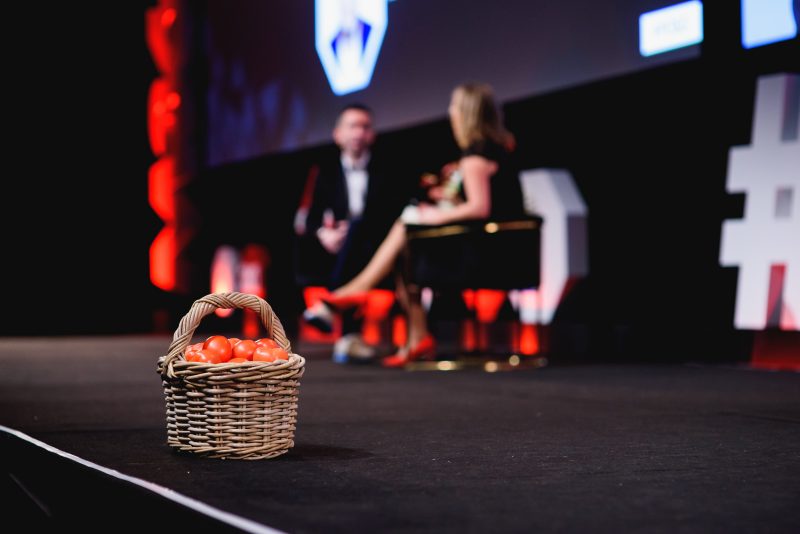Will adland ditch the pitch? Part 1: Saying no
A month ago, Mat Baxter asked the industry to join him in ditching the pitch. In this series, Mumbrella’s Brittney Rigby takes that challenge to a range of media agency bosses. Part 1 zooms in on specific instances of turning down, or pulling out of, a pitch, often because of the unreasonable terms Baxter denounced.
A month ago, Mat Baxter was standing on stage, pacing behind a basket of tomatoes, challenging his colleagues and competitors to ditch the pitch. The global CEO of media agency Initiative drew upon years of internal and RECMA data to build his case that client behaviour has eroded, while expectations have continued to inflate, enabled by media agencies competing in a race to the bottom.
“Just in this market, right now, there is a pitch going on for a CPG [consumer packaged goods] client. The mandatory requirement to participate in that pitch, you’ve got to agree to 120-day payment terms and, if you don’t, you’re out. And I want to call out publicly [fellow media agencies] Omnicom, PHD, who took a stand with us on not participating in that pitch,” Baxter said.
“The really good agencies have got to start saying no.”

“Step right up”: Baxter challenged those who disagreed with his Mumbrella360 keynote to do so publicly, placing a basket of tomatoes on stage


This unfortunately is not new news.
Check out the wonderfully written (and delightfully short) book ‘The Win Without Pitching Manifesto’ by Blair Enns…
ISBN-13: 978-1-60544-004-0